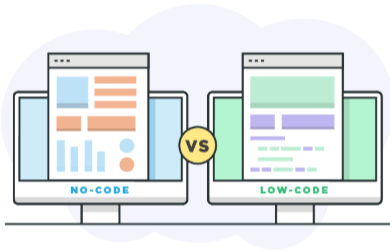10 Tools Every Software Developer Should Know
In today’s fast-paced software development landscape, proficiency with essential tools is crucial for success. Effective version control systems, integrated development environments, and code review tools enhance productivity and collaboration. Additionally, issue tracking software and CI/CD tools streamline workflows. Each of these tools plays a significant role in addressing various challenges developers face. Understanding their functionalities and benefits can significantly impact project outcomes and team dynamics. The exploration of these tools reveals deeper insights into modern development practices.
Version Control Systems
Version control systems (VCS) serve as essential tools in the software development landscape, enabling developers to manage changes to source code efficiently.
Effective branch management allows teams to work on features independently, while robust commit strategies ensure that changes are documented and integrated systematically.
This combination fosters collaboration, reduces conflicts, and enhances project visibility, ultimately empowering developers to maintain creative control over their work.
Read more: Why Every Tech Professional Should Learn Python
Integrated Development Environments (IDEs)
Integrated Development Environments (IDEs) are pivotal tools that enhance the productivity of software developers by providing a comprehensive suite of features within a single application.
They streamline the coding process through advanced code completion, allowing for faster and more efficient programming.
Additionally, integrated debugging tools facilitate error identification and resolution, ensuring higher code quality and reducing development time, thus empowering developers to innovate freely.
Code Review Tools
Code review tools play a crucial role in enhancing software quality through collaborative feedback and automated assessments.
Peer review platforms facilitate structured discussions among developers, enabling the identification of potential issues and fostering knowledge sharing.
Additionally, automated code analysis tools provide objective evaluations of code quality, ensuring adherence to coding standards and reducing the likelihood of defects.
Peer Review Platforms
Numerous peer review platforms have emerged as essential tools for software developers, facilitating the code review process and ensuring high-quality output.
These platforms not only enhance collaboration but also amplify peer review benefits, such as knowledge sharing and error detection.
Adhering to peer review best practices fosters constructive feedback, ultimately leading to improved code quality and team cohesion, essential for agile development environments.
Automated Code Analysis
Automated code analysis tools have increasingly become indispensable in the software development landscape, providing systematic evaluations of code quality and adherence to best practices.
These tools utilize static analysis to generate code metrics, conduct security scanning, and perform performance profiling. Additionally, they offer maintainability assessments, helping developers identify code smells that could hinder long-term sustainability, thus promoting greater freedom in code innovation and improvement.
Issue Tracking Software
Issue tracking software serves as a critical tool for managing and resolving software development challenges.
Popular options in this category offer various features that streamline the identification, assignment, and tracking of issues, ultimately enhancing team collaboration.
The benefits of implementing such tools extend beyond mere task management, contributing significantly to improved project organization and accountability.
Popular Issue Tracking Tools
Effective project management hinges on the ability to track and resolve software defects efficiently.
Popular issue tracking tools, such as Jira and Trello, employ robust bug tracking techniques and facilitate issue prioritization strategies.
These tools enable teams to categorize and address defects methodically, ensuring that critical issues receive attention first, thereby fostering an environment conducive to agile development and continuous improvement.
Benefits of Issue Tracking
The implementation of issue tracking software offers numerous advantages that significantly enhance software development processes.
It facilitates effective issue prioritization strategies, ensuring critical tasks receive timely attention.
Furthermore, the software fosters team accountability benefits by clearly assigning responsibilities and tracking progress.
This structured approach not only streamlines workflows but also empowers teams to address challenges proactively, ultimately leading to improved project outcomes.
Continuous Integration/Continuous Deployment (CI/CD) Tools
As software development evolves, the integration of Continuous Integration/Continuous Deployment (CI/CD) tools has become essential for enhancing efficiency and reducing errors in the software delivery pipeline.
These tools facilitate automated deployment, enabling developers to streamline updates and maintain code quality.
Moreover, CI/CD supports pipeline optimization, allowing teams to quickly address issues, improve collaboration, and accelerate the software development lifecycle while maintaining freedom in their workflows.
Testing Frameworks
Testing frameworks serve as crucial tools in the software development process, providing a structured environment for automated testing. They facilitate unit testing, enabling developers to verify individual components’ functionality.
Additionally, behavior-driven development (BDD) frameworks bridge the gap between technical and non-technical stakeholders, fostering collaboration. By employing these frameworks, developers can enhance code quality and ensure software reliability, ultimately promoting greater freedom in development practices.
Package Managers
While software development often involves managing numerous dependencies, package managers streamline this process by automating the installation, updating, and removal of libraries and frameworks.
These tools facilitate efficient dependency management, enabling developers to focus on coding rather than logistical challenges. By simplifying package distribution, they foster a more liberated development environment, allowing for rapid iteration and innovation without the overhead of manual dependency tracking.
Collaboration Platforms
Collaboration platforms are essential tools for software developers, facilitating effective communication and project management.
Real-time communication tools enhance team interaction, allowing for immediate feedback and streamlined discussions.
Meanwhile, project management solutions provide structured frameworks for tracking progress, assigning tasks, and managing deadlines, ensuring that development efforts remain organized and productive.
Real-time Communication Tools
Effective real-time communication tools have become indispensable in the modern software development landscape.
These platforms facilitate seamless collaboration through instant messaging and video conferencing, enabling teams to discuss ideas and troubleshoot issues instantly. By fostering direct interaction, developers can enhance productivity and innovation.
Choosing the right tools allows for greater flexibility, ensuring that teams can communicate effectively regardless of geographical constraints.
Project Management Solutions
As software development projects grow in complexity, the need for robust project management solutions becomes increasingly critical.
These platforms facilitate agile methodologies, enhancing team collaboration through effective task prioritization and resource allocation.
Features like workflow automation streamline sprint planning and milestone tracking, ensuring adherence to project timelines.
Ultimately, these tools empower developers to navigate complexities while maintaining the freedom to innovate and adapt dynamically.
Code Quality Analysis Tools
A multitude of code quality analysis tools exist to assist developers in maintaining high standards within their software projects.
These tools employ static analysis techniques to identify potential vulnerabilities and enforce coding standards. Additionally, they provide valuable code metrics that help in assessing code complexity and maintainability.
Containerization and Virtualization Tools
Numerous containerization and virtualization tools play a crucial role in modern software development, enabling developers to create, deploy, and manage applications with greater efficiency and consistency.
Container orchestration simplifies the management of complex applications, while virtualization benefits include resource optimization and isolation.
Together, these tools empower developers to embrace flexibility and scalability, ultimately fostering innovation and enhancing productivity in dynamic development environments.
Conclusion
In conclusion, the intersection of these essential tools forms a comprehensive ecosystem that enhances a developer’s workflow. Coincidentally, as developers embrace version control systems and CI/CD tools, they discover that their productivity soars, paralleling the growth of agile methodologies. This synergy not only streamlines coding processes but also fosters collaboration and innovation. By leveraging these tools, developers position themselves to navigate the complexities of modern software development, ensuring adaptability and excellence in their projects.






